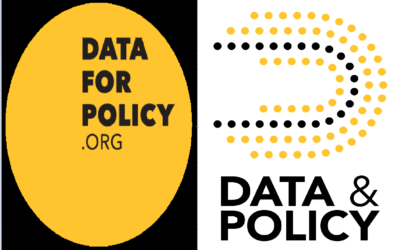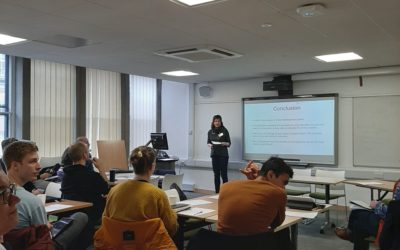Further Reading and Resources:
- Athey, S. (2017) Beyond Prediction: Using Big Data for Policy Problems. Science, 355, 483–485.
- Schrape, J.-F. (2017, May) Open Source Projects as Incubators of Innovation. From Niche Phenomenon to Integral. SOI Discussion Paper 2017-03.
- Baack, S. (2015) Datafication and empowerment: how the open data movement re-articulates notions of democracy, participation, and journalism. Big Data Soc., 2.
- Web Foundation. (2017, May) Open Data Barometer, Global Report Fourth Edition. The World Wide Web Foundation.
- Janssen, M., Konopnicki, D., Snowdon, J.L. and Ojo, A. (2017) Driving public sector innovation using big and open linked data (BOLD). Syst. Front., 19(2), 189–195.
- Safarov, I., Meijer, A. and Grimmelikhuijsen, S. (2017) Utilization of open government data: a systematic literature review of types, conditions, effects and users. Polity, 22, 1–24.
Predictive & Behavioural Analytics
Closely related to Big Data is Behavioural and Predictive analytics. These focus on providing insight into the actions of people through the analysis of large and varied data sets to uncover hidden patterns, and unknown correlations, to help make informed decisions
Behavioural Analytics centres on understanding how consumers act, and why, enabling predictions about how they are likely to act in the future. It allows providers in the private or public sector to make the right responses to the right consumer segments at the right time. Mainstream private sector uses are in eCommerce platforms, online games, web and mobile applications, and the IoT.
Predictive Analytics is the practice of extracting information from historical and real-time data sets to determine patterns and predict future outcomes and trends. Predictive analytics ‘forecasts’ what might happen in the future with an acceptable level of reliability, and includes what-if scenarios and risk-assessment. The defining function is the predictive score (probability) for an agent (individual, vehicle, machine, organisational unit, etc.) to aid with decision making in complex organisational processes. A representative example would be ‘credit scoring’ in financial services that uses customer’s credit history and current data to rank their likelihood of future credit payments on time. These technologies also show significant potential to aid decisions in government operations including law enforcement.
Related Papers and Publications

Algorithmic Government - The Computer Journal
Paper #02
Paper #03
Paper #03

Next GovTechLab Event
Latest News
Hiring: Research Assistant/Research Fellow in Data Science for Governance and Public Policy
Hiring: Research Assistant/Research Fellow in Data Science for Governance and Public Policy We are interested in building a collaborative team to lead research in this emerging field whilst also supporting the coordination and management of our two main projects –...
read moreSeminar: Translating Algorithm Ethics into Engineering Practice (UCL Digital Ethics Forum)
Translating Algorithm Ethics into Engineering Practice (UCL Digital Ethics Forum). The Digital Ethics Forum held its fifth workshop at the UCL Centre for Artificial Intelligence (4th February). Titled Translating Algorithm Ethics into Engineering Practice, the...
read moreWorkshop on “Location Data Technologies and Their Societal Implications” held at UCL (Jan 10th 2020).
Location Data Technologies and Their Societal Implications - UCL Digital Ethics Forum The third in the series of UCL Digital Ethics Forum Workshops was held in the Institute of Education (UCL), January 10th. Hosted by, Mirco Musolesi (UCL Geography) and Didem Ozkul...
read more



